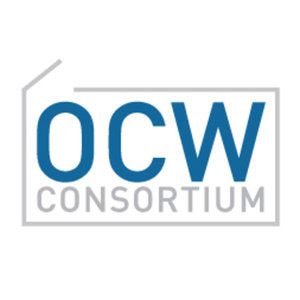
The University of Notre Dame OpenCourseWare (OCW) program has received the Landmark Site Award for OpenCourseWare Excellence from the OpenCourseWare Consortium. The award recognizes an OCW site of exemplary quality in its presentation of educational content (in breadth, depth and creativity) that has been in existence for more than one year.
The Awards for OpenCourseWare Excellence provide annual recognition to outstanding individuals, courseware and OpenCourseWare sites in the OCW Consortium community. The awards are presented each year at the global OpenCourseWare Consortium’s annual conference, which is being held this year May 8-10 in Bali, Indonesia. Individual award recipients are selected by the consortium’s board of directors; site and course awards are selected by an awards committee populated from the consortium membership.
Also receiving Site Awards for OpenCourseWare Excellence were Universitat Politècnica de Catalunya OCW with the Outstanding New Site Award and Peer 2 Peer University with the Technical Innovation Award.
“These three sites are outstanding examples of the creativity, dedication and generosity that are hallmarks of the OCWC community,” said OCW Consortium Executive Director Mary Lou Forward. ”We are thrilled to recognize their efforts and help draw attention to their contributions to the global body of open educational resources.”
The OpenCourseWare Consortium is a collaboration of more than 250 higher education institutions and associated organizations from around the world creating a broad and deep body of open educational content using a shared model.
Notre Dame OCW was a founding member of the OCW Consortium and launched its site in 2006. The site now includes more than 50 Notre Dame courses in 24 subject areas and was visited by more than 300,000 people from around the world last year, an increase of nearly 50 percent from 2011. OpenCourseWare is a free and open educational resource for faculty, students and self-learners throughout the world. The courses provided are typically static content, although a small number have been updated by faculty members over time.
Cathy Schulz, coordinator for Notre Dame OCW, creates the courses using materials supplied by faculty members, ensuring that intellectual property rights are obtained to allow for appropriate Creative Commons licensing. Completed courses are made public after being reviewed and approved by the participating faculty member.

A survey by consortium member MIT showed that 43 percent of visitors to its site were self-learners, 42 percent were students, 9 percent were educators and 6 percent were others, a likely breakdown of Notre Dame traffic, Schulz says.
An undergraduate philosophy major at California State University in Los Angeles wrote to thank Schulz for the enrichment to his program. “With your website I was able to regain my passion of education,” he said. “The resources, the academic code of honor, the freshman bridge writing class, they are all really great sources to promote a lifelong habit of learning.”
A course by David O’Connor, “Ancient Wisdom and Modern Love,” has become so popular in China in the past year that a publisher recruited O’Connor to write a companion book on the subject that will be translated into Chinese by the end of this year.
A course by Karen Richman, “Creole Language and Culture,” received a spike in traffic after the Haiti earthquake, and Richman offered to assist visitors who were studying to help with relief efforts. Her course won an OCW Consortium Outstanding Course ACE Award in the Text and Illustrations category last year. A course from Chris Clark, “Applied Multimedia Technology,” won an ACE award in the same category in 2011.
“Notre Dame’s OpenCourseWare is an excellent example of the University living its mission by freely providing a resource to help improve the world,” said Kevin Barry, director of Notre Dame’s Kaneb Center for Teaching and Learning. “We are excited to have this work recognized as an exemplar in the open educational resource community.”